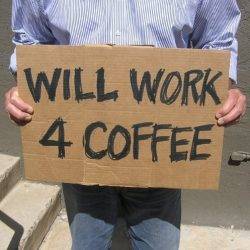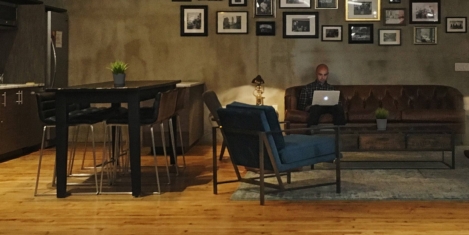May 25, 2017
Half of UK employees work one unpaid day a week, but Germans get an even worse deal 0
 Nearly half of UK employees are effectively working an extra day per week for free, claims new research from Powwownow. On average, UK workers spend just under seven hours per week working outside of contracted hours – the equivalent of a nine-to-five working day with an hour for lunch – but nearly half of them (42 percent) receive no pay for this extra days’ worth of work. A quarter of UK workers (26 percent) receive their standard pay for any overtime, while a fifth (21 percent) are rewarded with ‘time and a half’. Only 6 per cent receive ‘double time’. Germans get a worst deal though, as employees spend an average of 7 hours and 54 minutes working extra but a huge 61 percent of workers receive no pay at all for this time. Workers in Sweden spend the least time working outside of contracted hours, with only 4 hours and 9 minutes of extra work per week.
Nearly half of UK employees are effectively working an extra day per week for free, claims new research from Powwownow. On average, UK workers spend just under seven hours per week working outside of contracted hours – the equivalent of a nine-to-five working day with an hour for lunch – but nearly half of them (42 percent) receive no pay for this extra days’ worth of work. A quarter of UK workers (26 percent) receive their standard pay for any overtime, while a fifth (21 percent) are rewarded with ‘time and a half’. Only 6 per cent receive ‘double time’. Germans get a worst deal though, as employees spend an average of 7 hours and 54 minutes working extra but a huge 61 percent of workers receive no pay at all for this time. Workers in Sweden spend the least time working outside of contracted hours, with only 4 hours and 9 minutes of extra work per week.















 Seven in ten UK employees – equivalent to 18 million nationally – have gone to work feeling unwell when they should have taken the day off, while less than a quarter (23 percent) say they have taken a day off work sick when they were not actually unwell, indicating that UK employees are three times more likely to go to work unwell than they are to ‘pull a sickie,’ a new report claims. The fourth edition of the Aviva Working Lives Report, which examines the attitudes and experiences of employers and employees on issues affecting the present and future of the UK workplace – also carries a wake-up call to businesses, as more than two in five (43 percent) employees feel their employer puts the results of the company ahead of their health and wellbeing as more than two in five (41 percent) say their work will pile up if they are off sick.
Seven in ten UK employees – equivalent to 18 million nationally – have gone to work feeling unwell when they should have taken the day off, while less than a quarter (23 percent) say they have taken a day off work sick when they were not actually unwell, indicating that UK employees are three times more likely to go to work unwell than they are to ‘pull a sickie,’ a new report claims. The fourth edition of the Aviva Working Lives Report, which examines the attitudes and experiences of employers and employees on issues affecting the present and future of the UK workplace – also carries a wake-up call to businesses, as more than two in five (43 percent) employees feel their employer puts the results of the company ahead of their health and wellbeing as more than two in five (41 percent) say their work will pile up if they are off sick.

















May 26, 2017
An overdue attempt to connect smart buildings with smart people 0
by Xenia Kingsley • Comment, Property, Technology
(more…)